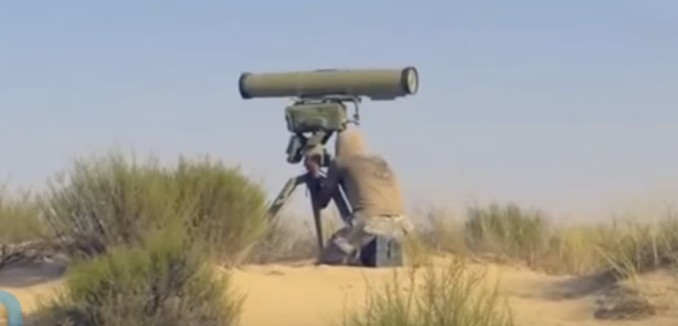ISIS-affiliated fighters in Egypt’s Sinai Desert are digging up Nazi munitions that were buried in the sand during World War II and using them as material for bombs and other weapons, Newsweek reported Wednesday.
An estimated 17 million land mines are buried in northwest Egypt near the site of the 1942 Battle of El Alamein. Though Egypt has been making efforts to clear its territory of the deadly artifacts, members of ISIS-Sinai Province, as the local affiliate is known, have been scavenging the mines for their metal and explosives and using them to attack Egyptian forces.
Nazi bomb material was first used by extremists who killed 34 people at the resort city of Taba in 2004. The usage of World War II mines has taken off since the terrorist group Ansar Beit al-Maqdis pledged its allegiance to ISIS in late 2014. “We’ve had at least 10 reports from the military of terrorists using old mines,” Fathy el-Shazly, a former Egyptian ambassador to Saudi Arabia who recently ran his nation’s efforts at clearing the mined areas, told Newsweek. “Even now, these things trouble us in different ways.”
A March attack on an Egyptian army convoy near the Red Sea that killed five soldiers was blamed on explosives scavenged from the old mines. The Egyptian army has only had partial success in fighting the Sinai-based insurgency, even with the recent shipment of 700 mine-resistant vehicles from the United States.
Egypt has removed around three million mines since 1981, according to the Egyptian army, which believes that the area will be fully cleared of mines within three years.
While recovering the old explosives is fraught with risks—a gust of wind or a shift in sand could trigger an explosion—tribesmen living in the area are poor, and so getting paid for digging up the mines is worth the risk. “They do this because they have nothing else to live on,” Abdul Moneim Waer, an activist who advocates for land mine awareness in El Alamein, told Newsweek.
The Egyptian military said last week that it killed the leader of ISIS-Sinai Province in an airstrike along with dozens of the group’s fighters. In a video published days earlier, the group — which has close ties to the Palestinian terrorist organization Hamas, and in the past fired rockets at Israel’s southern region —threatened to turn Israel into “a graveyard for Jews.”
Arik Agassi wrote in The Tower Magazine in January that ISIS-Sinai Province “has become one of the most powerful, dangerous, and effective in the region,” largely due to Iranian support via Hamas.
The Iran-Hamas-ISIS axis is part of Iran’s strategy of using proxy forces against U.S. allies like Egypt and Israel as part of a larger strategy to achieve hegemony over the Middle East. This has resulted in one of the region’s best kept secrets: An intensive cooperation mechanism between Iran, Hamas, and ISIS, based on money, weapons, military equipment, and training.
Iran’s foreign policy goal of hegemony over the Middle East is based on its primary ideological pillar – exporting the Islamic Revolution to other countries using terrorism and political subversion. In pursuing its ambitions, Iran has often put aside its religious differences with radical Sunni groups like ISIS and Hamas. The Islamic Republic is more than willing to cooperate with these groups as long as doing so helps promote its larger interests.
“By directly supporting Hamas in Gaza and indirectly supporting ISIS in the Sinai, Iran is able to gain foothold against Israel and Egypt to destabilize them, undermine America’s regional influence, create another Iranian power base in a Sunni-dominated region, and project its power and influence in its pursuit of regional hegemony,” Major (res.) Dan Feferman, a former senior IDF intelligence officer and Iran specialist, told the Tower. When asked why Iran would indirectly fund a serious rival such as ISIS, Feferman said that Lebanon, Iraq, and especially Syria are more important to Iran than the Sinai, as Iran wants to preserve its influence in states affected by the Syrian civil war – so Iran fights ISIS in those counties. In places where Iran does not have a strong influence, such as Egypt, it feels comfortable supporting ISIS, albeit indirectly.
[Photo: The Levantine Group / YouTube ]




